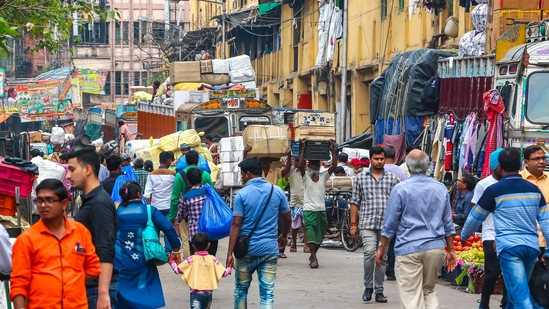New Delhi, The Supreme Court on Thursday said if Rohingya refugees in the country were found to be foreigners under Indian laws they will have to be deported.

A bench of Justices Surya Kant, Dipankar Datta and N Kotiswar Singh referred to a top court’s order and remarked the identity cards issued by the United Nations High Commissioner for Refugees may not be of any help to them under the law.
“If they are foreigners as per the Foreigners Act, then they have to be deported,” Justice Datta told senior advocate Colin Gonsalves and advocate Prashant Bhushan appearing for different Rohingya petitioners seeking various reliefs.
The top court was informed that some refugees having UNHCR cards, including women and children, were arrested by police authorities late last night and deported, despite a hearing slated on Thursday.
Justice Datta said, “If they are all foreigners and if they are covered by the Foreigners’ Act, then they will have to be dealt with as per the Foreigners’ Act.”
The court decided to hear the matter finally and posted the hearing on July 31.
Solicitor General Tushar Mehta, appearing for the Centre, referred to the April 8, 2021 order of the court and said it bound the government to take deportation action in accordance with law.
Gonsalves said last night’s events were “alarming” and “shocking” as it amounted to overreach of the court’s decisions.
Referring to the UNHCR cards, Mehta said India was not a signatory to the refugee convention.
The April 2021 order said the rights guaranteed under Articles 14 and 21 are available to all persons who may or may not be citizens but the right of not to be deported, is ancillary or concomitant to the right to reside or settle in any part of the territory of India guaranteed under Article 19.
During the hearing, Bhushan urged the bench to finally hear the matter saying it was not the Refugee Convention alone which needs to be seen, but also the Genocide Convention which has been ratified by India.
Justice Kant said, “It would be better that instead of passing interlocutory orders of any nature, we take up these matters and decide either way. If they have a right to stay here, that should be acknowledged, and if they don’t have a right to stay here, then they will have to follow the procedure and deport as per the law.”
When Gonsalves again expressed apprehension of further deportations, Justice Kant said Mehta had assured deportations would happen in line with Indian laws.
This article was generated from an automated news agency feed without modifications to text.

